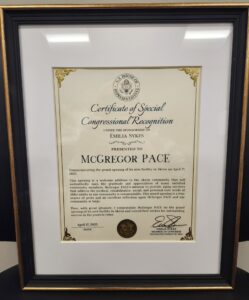Is PACE Different From the Medicaid PASSPORT Program?
Understanding the Benefits and Services Provided
If you are a senior considering PACE enrollment, you may be wondering what makes PACE different from the Ohio Medicaid PASSPORT waiver program. In fact, it is not uncommon for prospective PACE participants to question whether they should just “stick with PASSPORT.” While both programs have similar aims, they are actually quite different. As you will soon discover, PACE provides a far greater selection of services and comprehensive benefits to its participants than traditional Medicare.
First, let’s explain what the Ohio Medical PASSPORT waiver program is. The program, much like PACE, is designed to allow seniors who need a nursing-facility level of care to remain living at home or in the home of a family member. The program provides care services designed to promote independence. However, the state of Ohio has a cap on the amount of money that can be spent on a senior in the PASSPORT program each month. As stated by Medicare, “The cost of care provided at home cannot exceed 60% of the cost for that same care, if it were provided in a nursing home.”
How PACE Is Different From PASSPORT
- PACE requires no deductibles or monthly premiums.
While traditional Medicare requires yearly deductibles and monthly premiums for seniors in the PASSPORT program, PACE does not. There are no costs to seniors or their families. - PACE covers all medical care costs—including durable medical equipment (DME).
For example, when PACE recommends a specialist for a participant’s care, the associated costs are completely covered. If a PACE participant needs any DME, such as a wheelchair or a lift chair, that equipment is ordered, delivered, and installed free of charge. Under Medicare, the senior’s medical care costs and DME costs would only be 80 percent covered. Also, unlike PACE, Medicare does not provide any dental or vision services. - PACE provides an interdisciplinary care approach.
When a senior is enrolled in PACE, they have access to a team of intake coordinators, physicians, and social workers who work together to address their mental, physical, and social needs. Many PACE seniors and their families benefit especially from the support of social workers to connect them with community resources. The PASSPORT program does not provide the services of a social worker. - PACE offers transportation to and from an adult day center.
Seniors enrolled in PACE have convenient transportation from their door to the doors of an adult day center, where they can engage with other seniors, participate in daily activities, and enjoy a hot meal. Transportation is also available to take them to medical appointments. The PASSPORT program is focused only on in-home care: They do not offer transportation, an adult day center, or meals. Seniors in PASSPORT do not benefit from the same types of socialization opportunities provided by PACE.
If you are choosing between PACE and PASSPORT, let us know what information we can provide to help you finalize your decision. Reach out to our team at any time.


